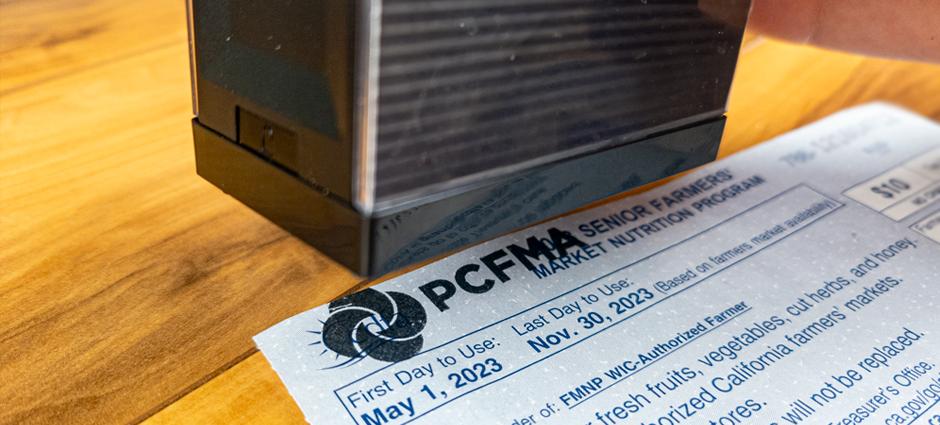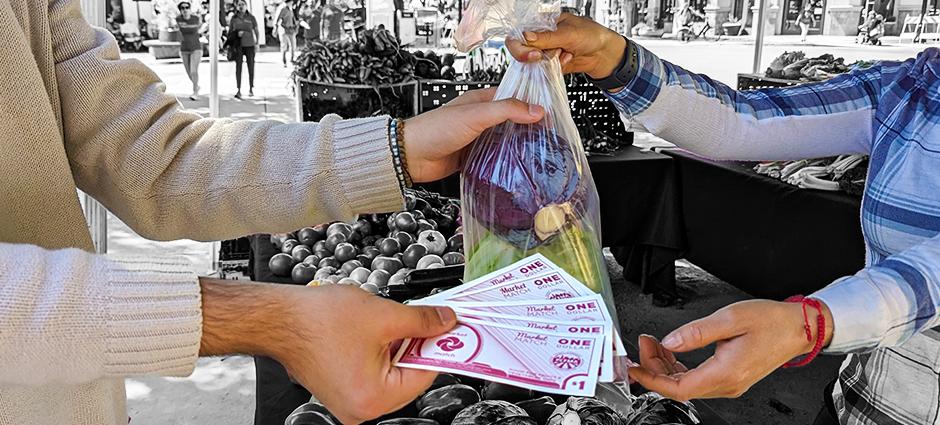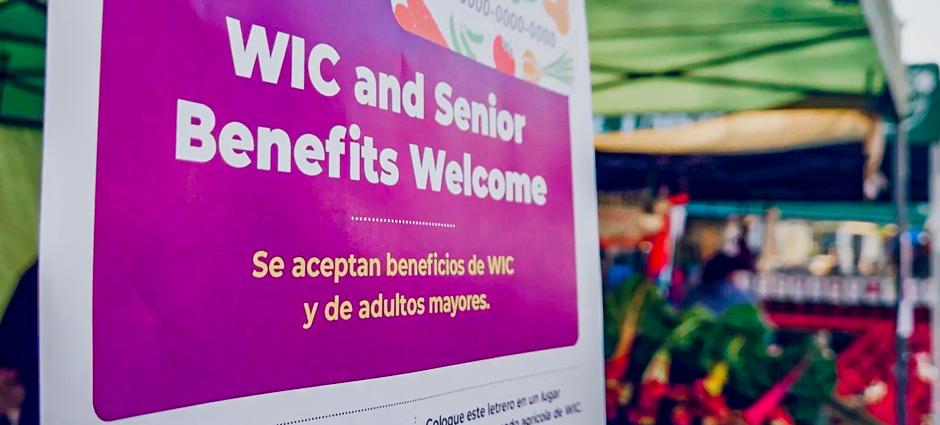California Considers Changes to FMNP Food Program
The Farmers Market Nutrition Program (FMNP) is unique among the food access programs that operate in farmers markets in California. FMNP is the only program that was designed exclusively for use at farmers markets and farm stands. While CalFresh, known as SNAP or the Supplemental Nutrition Assistance Program at the federal level, is a much larger program, it can be used at a wide variety of retail outlets in addition to farmers markets, including grocery stores and corner stores.
This support for farmers and farmers markets was written into the Congressional legislation that first created FMNP. According to the USDA Food and Nutrition Service (USDA-FNS), FMNP was intended to “provide fresh, nutritious, unprepared, locally grown fruits, vegetables, and herbs through farmers’ markets” and to “increase the domestic consumption of agricultural commodities through farmers' markets, roadside stands, and community supported agricultural programs.”
Within FMNP are two separate, parallel programs. WIC FMNP provides benefits to mothers who are enrolled in the WIC program. Senior FMNP provides benefits to low-income seniors. In 2023, USDA-FNS provided $3.3 million in support for California’s WIC-FMNP and $926,000 for the state’s Senior FMNP.
Since its inception, FMNP has provided its participants with paper vouchers that they can use to make purchases of fresh fruits and vegetables directly from farms at farmers markets. The value of the vouchers has varied over the years and is currently $10 each, with WIC participants receiving 3 checks for a total of $30 of benefits and seniors receiving 5 checks for a total of $50 of benefits. USDA-FNS has instructed all states that participate in the FMNP program to transition from distributing benefits via paper vouchers to distributing benefits via an electronic system.
This would be a significant change for the program and the prospect has raised concerns at PCFMA and other farmers market operators because previous transitions of food benefits from paper vouchers to electronic cards have resulted in a drop of benefit spending at farmers markets. Between 1996 and 2002, PCFMA recorded an average of $43,000 in spending from the Food Stamp program which preceded CalFresh and utilized paper vouchers to provide benefits to its participants. Between 2002 and 2009, after the introduction of the CalFresh program and the distribution of benefits via debit cards, PCFMA recorded an average of only $7,750 in benefits per year. It wasn’t until 2010 that PCFMA recorded a higher level of benefits than before the transition away from paper vouchers.
A similar drop in benefit spending occurred when the state of California transitioned the monthly WIC benefit from paper vouchers to an electronic card. Farmers who wish to accept WIC Cash Value Benefits (CVB) on an electronic card must use a state-provided processing device which has not proven effective for farmers and it limits them to accepting benefits in only one location per day. In a state with over 650 farmers markets, it is not unusual for farms to sell in multiple locations on a single day.
As you can imagine, it is a high priority for California farmers and the farmers markets where they sell their products that the transition of FMNP did not create a similar, multi-year drop in benefit spending. Around 40 California farmers market operators signed on to a letter drafted by PCFMA and Hunger Action Los Angeles that pointed out the concerns of California’s farmers and farmers markets and provided suggestions for how this transition, if managed successfully, could support an increase in FMNP benefit spending instead of a drop in spending.
I recently had the opportunity to participate in the annual conference of the National Association of Farmers Market Nutrition Program (NAFMNP). There, states that have already made the transition from paper vouchers to electronic systems presented their processes, often accompanied by the technology providers that they contracted with to process the benefit payments. While it was concerning to hear multiple states report that their FMNP benefit spending dropped during the year of their transition to an electronic system, it was heartening to learn that the spending often rebounds in the following year to match or even exceed the FMNP spending during its final year of paper vouchers.
This transition also has additional potential benefits as evidenced in other states. The electronic systems allow customers to spend as much or as little as they like with each participating farmer. Currently, farmers cannot give cash change for FMNP vouchers so customers must spend each $10 voucher with a single farmer. The transition to an electronic system could help more farmers benefit from the program and allow customers to purchase a wider variety of fresh produce while reducing food waste.
The transition to an electronic system could also unlock the monthly WIC CVB to allow it to be spent at farmers markets. The WIC CVB can be used to purchase fresh fruits and vegetables and if the electronic system designed for FMNP is constructed properly, it could also allow farmers to accept WIC CVB without relying upon the state-issued device to process WIC clients’ debit cards.
California is lucky to have strong support at both the California Department of Public Health, which oversees WIC FMNP, and the California Department of Food and Agriculture, which is responsible for Senior FMNP. We are confident that the staff within these departments are moving forward in the best interests of farms and farmers markets. As this transition is mapped out over the next year, PCFMA and its partners around the state stand ready to support and advise their efforts.
Our state’s farms and the thousands of families and seniors who eat better as a result of these programs are counting on us.

Allen Moy
Executive Director


